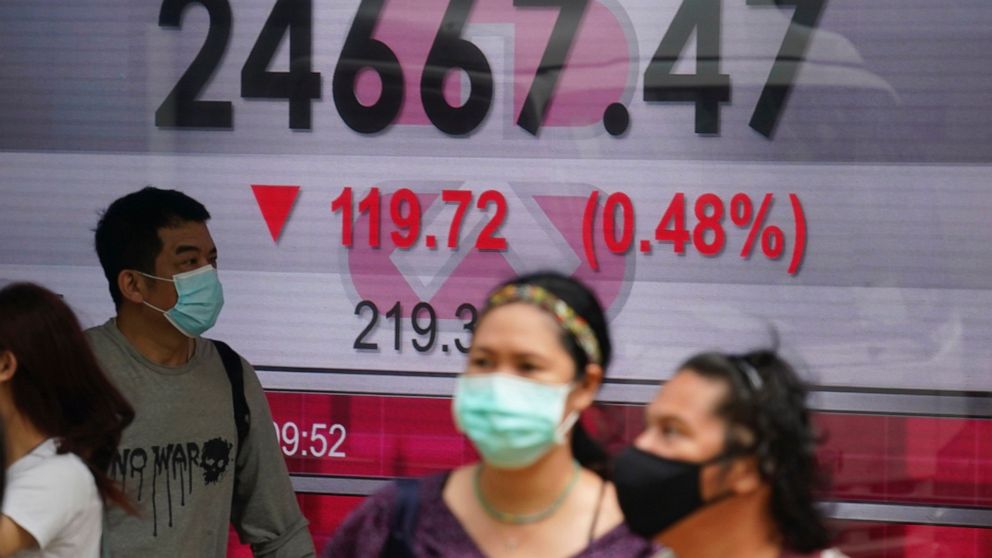Global stocks slide amid worries over virus cases, US aid
Global shares are mostly lower as countries tighten precautions to try to stem rising numbers of coronavirus infections
TOKYO — Global shares are mostly lower as countries tighten precautions to try to stem rising numbers of coronavirus infections.
France’s CAC 40 dropped 3.5% in early trading to 4,565.93, while Germany’s DAX dropped 3.3% to 11,663.00. Britain’s FTSE 100 lost 2.3% to 5,595.22. U.S. shares were poised for declines, with Dow futures down 1.7% at 26,893.0, while S&P 500 futures were trading at 3,335.38, down 1.5%.
Optimism that the pandemic may have been brought somewhat under control has dissipated as infections continue to rise in Europe, the U.S. and other parts of the world.
Caution continues to hang over markets. Governments have begun to impose restrictions on businesses and other activities to help curb surging infections. That could choke off improvements seen since the summer. Fresh pandemic precautions are also drawing a public backlash despite spiking levels of illness in European countries.
Policymakers in Europe “must choose between low unemployment or low COVID transmission rates. Unfortunately, they are now left dealing with the most sensitive currency of them all, people’s lives,” Stephen Innes of Axi said in a report.
Few sectors, such as communication and IT services, are gaining amid the outbreaks, deepening the pessimism in Asia. The uncertainty surrounding the upcoming U.S. election also has left market players wary.
Japan’s benchmark Nikkei 225 fell 0.3% to 23,418.51. South Korea’s Kospi gained 0.6% to 2,345.26. Australia’s S&P/ASX 200 rose 0.1% to 6,057.70. Hong Kong’s Hang Seng shed 0.3% to 24,708.80, while the Shanghai Composite gained 0.5% to 3,269.24.
India’s Sensex slumped 1.6% to 39,888.14, as the number of confirmed COVID-19 cases in the country approached 8 million. Shares also fell in Taiwan.
Investors are clamoring for Congress to deliver more virus relief for the U.S. economy, but they’re increasingly acknowledging it won’t happen anytime soon.
Wall Street’s caution is also apparent in how it’s reacting to corporate profit reports. Through the first two weeks of earnings season, companies that reported better results than expected have not been getting the typical pop in their stock price the day after.
In energy trading, benchmark U.S. crude lost $1.62 to $37.95 per barrel in electronic trading on the New York Mercantile Exchange. It gained $1.01 to $39.57 per barrel on Tuesday.
Brent crude, the international standard, fell $1.39 to $40.22 a barrel.
The U.S. dollar weakened to 104.27 Japanese yen from 104.41 yen late Tuesday. The euro cost $1.1758, down from $1.1796.
![]()


